If I told you that the media coverage of the war in Ukraine is riddled with bias, what would you say? What if I also told you that a story about Ukraine should point out that what’s happening to that country should focus on circumspect comparability of Ukrainians to other persecuted peoples such as Palestinians, Kurds, Yazidis, Afghans, and everyone else who’s ever been persecuted? Otherwise, the story just isn’t sensitively framed.
What if a writer stated the worst thing you could say about Ukraine on the air or in writing is: “I didn’t think it was possible for this to happen in Europe in 2022”? Or that any journalist who expresses what’s happening to Ukrainians as a unique, world-changing event is guilty of the moral sin of being implicitly racist.?
Well, that’s what LA Times television critic Lorraine Ali reports in her recent article, “In Ukraine reporting, Western press reveals grim bias toward ‘people like us,’” where she laments the words of her fellow journalists who went to Ukraine to cover the war. Ali’s bio on the LA Times site states that she has also covered “culture at-large, entertainment, and American Muslim issues” for her paper.
Ali’s article parrots and buys into the press release of the Arab and Middle Eastern Journalists Association (AMEJA), which takes umbrage at the statements of reporters from CNN to Al Jazeera. AMEJA’s virtue-signaling message to newsrooms is that one shouldn’t make the Ukrainians so special because it’s disrespectful to other “victims of war.” The AMEJA statement from February reads,
The Arab and Middle Eastern Journalists Association (AMEJA) calls on all news organizations to be mindful of implicit and explicit bias in their coverage of war in Ukraine. In only the last few days, we have tracked examples of racist news coverage that ascribes more importance to some victims of war over others.
Ali agrees, concluding her article with:
Unfortunately, in Europe’s newest conflict, at least one age-old problem persists: The limits of empathy in wartime are still too often measured by race.
That just strikes me as a selfish and insensitive position by a group of far too easily triggered journalists who are, by their choice of narrative, the ones showing their biases denigrating the significance of the upheaval that Ukraine represents to the human condition. It’s the same academic woke bias behavior, just extended into war zones.
AMEJA and Ali suffer from the all too common, ugly example of being caught up in their own narrower view of the world. Instead of reporting the story, they are trying to inject themselves into the story. You can almost hear the Karen cackle, “How dare you imply that your world can forget my issues?” As if just making someone else’s plight important during their 15 minutes means your entire history is forgotten.
Yet, these very same foreign correspondents AMEJA accuses of being racist are the same ones who have turned up in places like Gaza, Yemen, Sinjar, Aleppo, Kabul, Kandahar, and other places near and dear to the hearts of AMEJA reporters.
These are the journalists who sleep fully clothed in Kyiv, ready to dart to bunkers at 2:00am. These are people who do have the field experience to sense when something is new and different. And know it’s their job to say so to the world.
It’s bad journalism on the part of AMEJA and Ali to editorialize their personal biases into the Ukraine story this way.
The fact of the matter is that Ukraine is an unprecedented story. Ukraine is the story about the collapse of the post-Cold War “peace dividend.” It’s the realization that the fear that the world thought it had eliminated — that the human race may perish in a nuclear wasteland — has very much returned. It’s a story about realizing that countries that have integrated deeply into the first world economy can be as fragile as eggshells. It’s witnessing the truth that cityscapes in Europe in 2022 can be reduced to what they looked like in 1945 overnight. It’s the story of witnessing the attempt to raise a defunct Cold War superpower to begin a mission of conquest — challenging the world order of Western democracies. It is a story about the impotence of the West to stop it. It’s the story of the last superpower of the Cold War, the United States of America, foundering aimlessly after decades of internal decay. It is a story about how hollow the human condition has become.
This is more than unconsciously making the plight of white refugees more important than that of brown or black ones, as Ms. Ali and AMEJA reported. Instead of interpreting the shock of the witnesses to tragedy with anger as they express themselves, Ali and those who think like her would do much better to look inside themselves and see that their feelings are the ones that are conflicted. They are the ones displaying a lack of empathy, while witnessing yet another society descend from peace to war.
I get it that every tragedy opens old wounds in the hearts of cultures that have also experienced being on the wrong end of conquest. There’s an emotional response to such things. One can either interpret moments like these with empathy for those suffering, or twist the events with envious eyes and engage in petty behavior because, heaven forbid, someone else is getting more attention from being shot at by yet another despot embarking on empire building and ethnic cleansing
If anything, Ali and those who think like her should be focusing on what the destruction of Western Europe means to the future of the dispersed diaspora of the people they represent. These persecuted communities took refuge in the west. Many continue to look to the west with hope — a hope that is now dimming.
In the future, all refugees hiding from despots in their homelands will be less safe. The value of human life on this planet that was represented by the idealism of the western world, and the individual liberty exemplar of the United States, may be beginning to sunset. Ukraine is not only the beginning of the journey of the first world back to the dark ages. Ukraine is also a curtain call for Ali’s hopes and dreams, too.
“It is unwise to be too sure of one’s own wisdom. It is healthy to be reminded that the strongest might weaken and the wisest might err.” – Mahatma Gandhi.
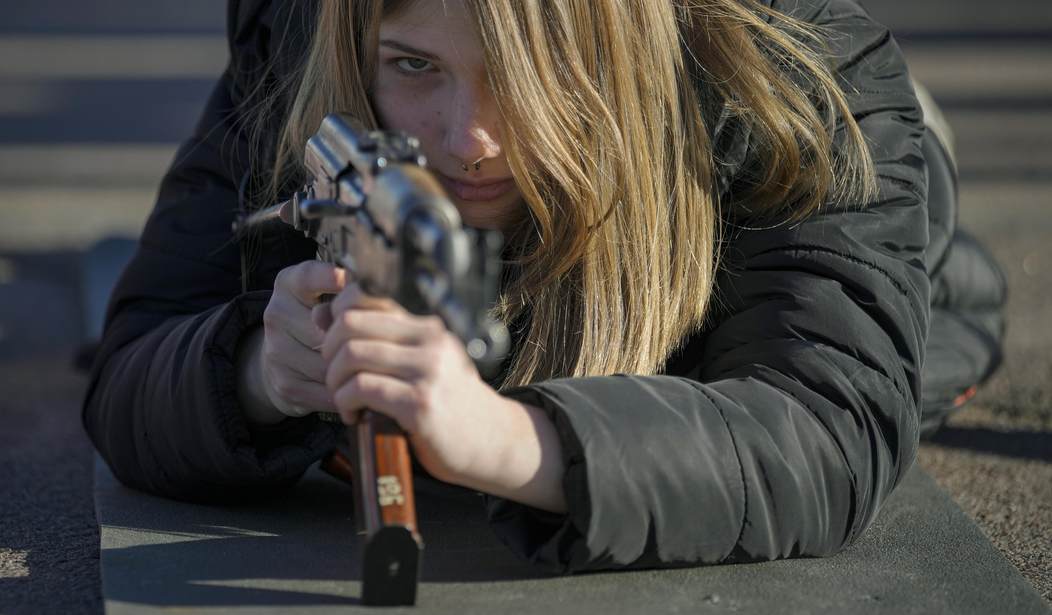

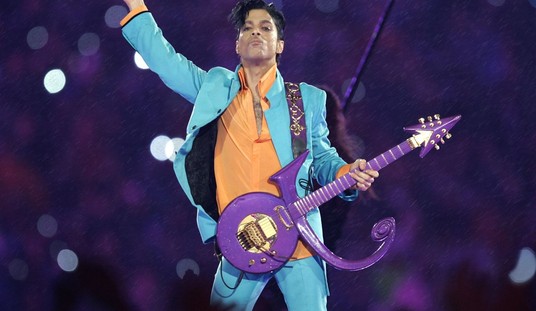

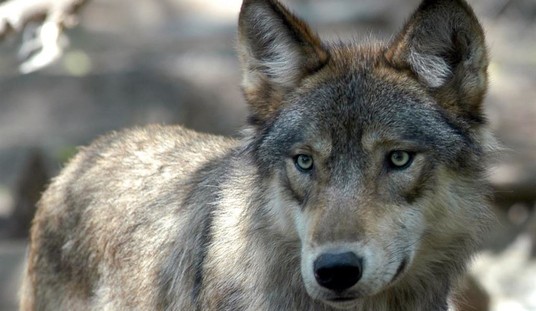
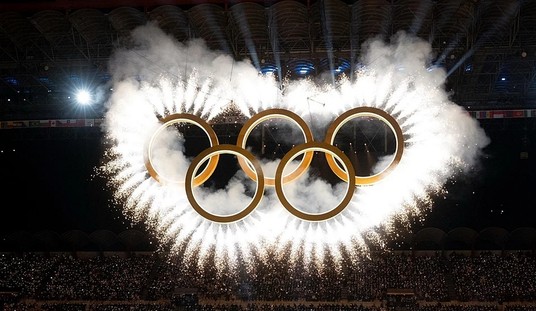
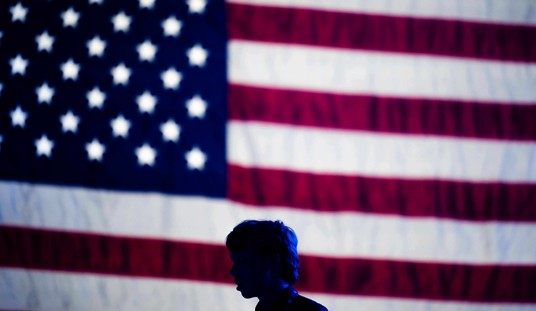
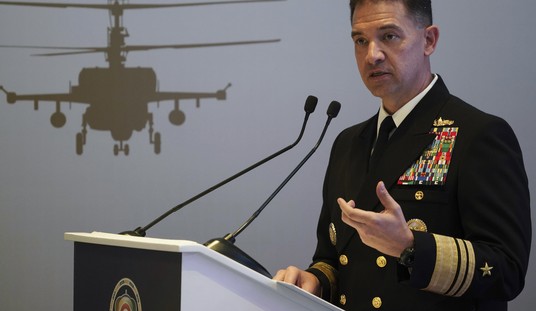


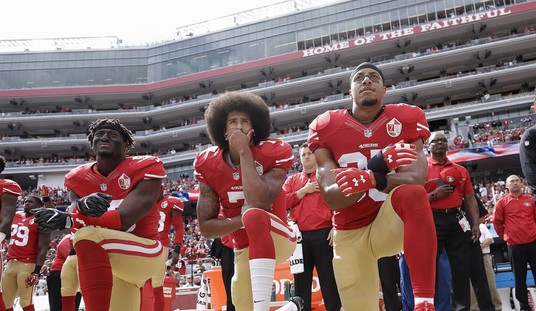

Join the conversation as a VIP Member